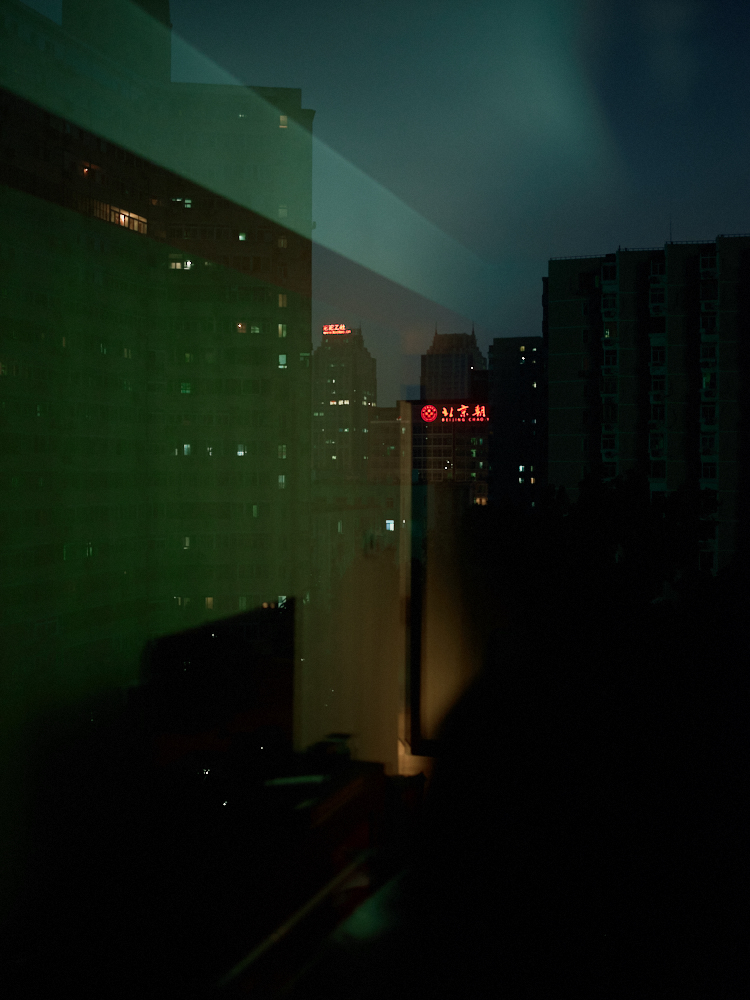
Different Worlds
Before she left again, Min said the world had changed. It was not something she could see or explain easily, and yet she was sure something was different. When I asked, she said it was like opening a book she had read a long time ago, and realizing the story was not as she remembered it.
“The words are the same as they always were,” Min said, “but now there is new meaning in them, and I can no longer see them any other way.”
I thought of the books I’d read with this concept at their heart — where the characters discover hidden truths beneath a surface of well-crafted lies — and how I could always put them down and return to the life I knew. But for Min it was different. The world was a story she wrote as she went; she could not simply put down the book, because the book was her life.
I met Min at the airport when she came home from studying abroad. She had a small suitcase, a backpack, and a plastic bag full of miscellaneous souveniers. Her hair was a mess and her eyes had the look of someone who has spent far too long in a confined space with other people.
“Thanks for coming to pick me up,” she said.
“I didn’t expect you to ask,” I said.
“There was nobody else.”
“Ah.”
I had wanted to ask Min about her trip, but she was asleep by the time I started the engine of my little Toyota. She slept the entire way to the apartment building where I lived, which was where her parents lived, and so where she would also live until she found a place of her own, or got married, or otherwise left again.
It struck me then that she had been gone three years. Had it really been that long?
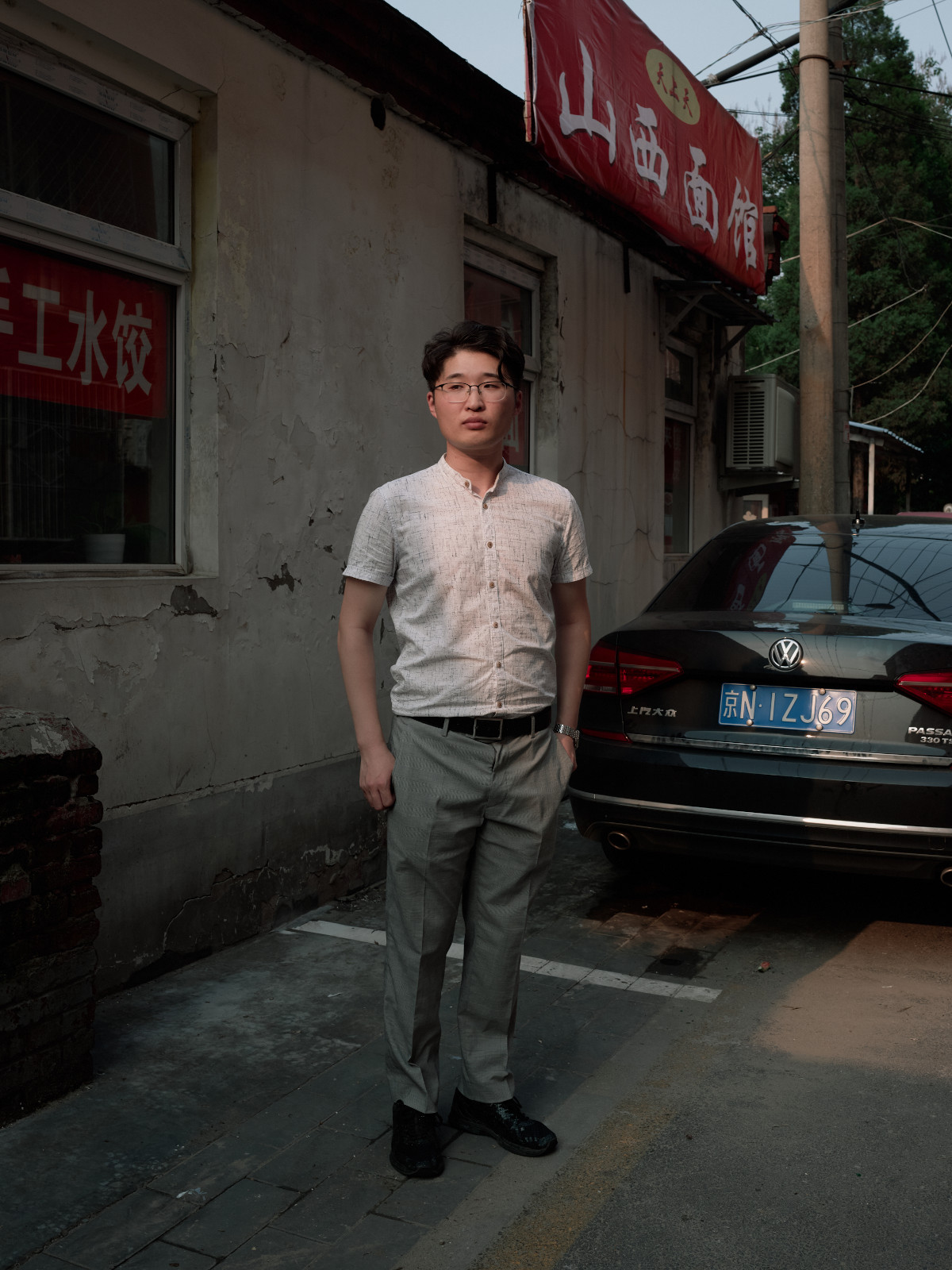
When the elevator stopped at her floor, Min handed me a package.
“What’s this?” I asked.
“They’re cookies. They’re very good. My first month at school, a friend gave me some and I couldn’t stop eating them. I put on so much weight. I couldn’t show my face to mom because I knew what she would say. I did yoga to try and balance things out, but I still couldn’t stop.”
“You did yoga?”
Min laughed.
“Yes,” she said, and then she left.
Yoga. Perhaps three years really had been that long.
That evening, I chewed on a cookie and stared out the open window, half-listening to the noise that bled from the television, and half-listening to the city as it breathed in the night.
I had the strong sense that Min had changed; as though little bricks of new experiences had built her into a new person. I imagined that if we put a photo of us now next to a photo of us then, it would be like pictures of Min standing next to the same cardboard cut-out, because I was still the same as I was when she left; I lived in the same apartment, worked the same job, and did all the same things. The only difference now was the cookies.
And they were all too sweet.
Min and I sometimes met outside my room on the eleventh floor. Our apartment block was a giant structure that made me think of an ant hill diorama cut down the middle so you can see what’s inside. Min and I would stand outside smoking cigarettes and looking down at the city, a maze of small homes and businesses among giant apartment buildings like dinosaur fossils people had turned into homes. We talked until our cigarettes burned down to their butts, and then flicked them off the side.
Just like old times.
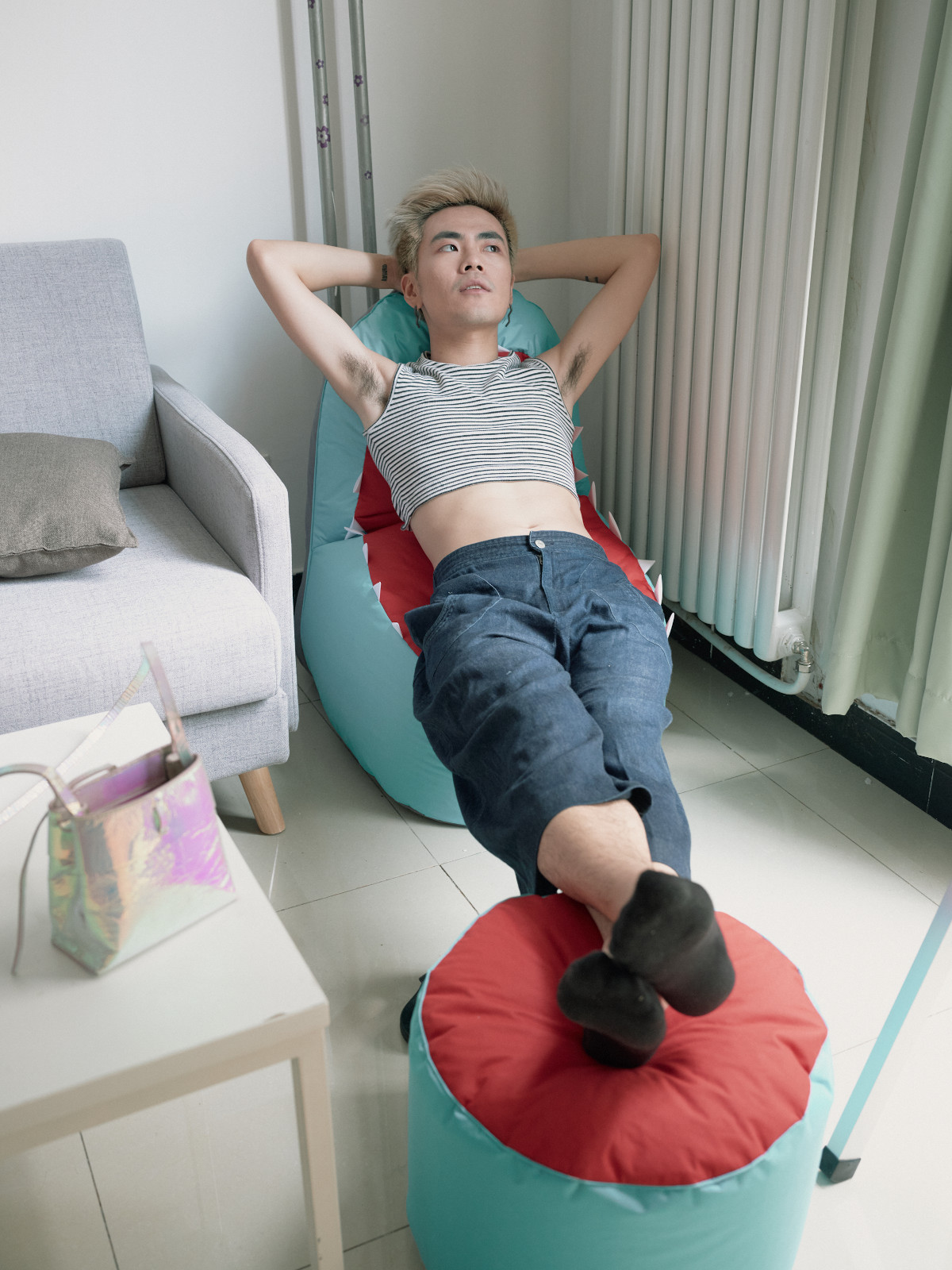
“People keep asking me how my time away was, but they never really listen to my answers,” Min said.
“What do you mean?”
“They’re more interested in what I’m going to do now that I’m back.”
“Oh.”
“Everybody wants to know the same thing. What will you do now? How will you settle into your future back home? Where are you working? When are you getting married?”
“They would ask that even if you never left.”
“But now it’s like I have to make up for lost time.”
“I see.”
“But it’s kind of old fashioned, don’t you think?”
“It’s the generation gap, isn’t it?” I said. “Our parents are from a different time.”
Min shook her head.
“I don’t know. Since I got back, it feels cultural. Experiential.”
“Experiential?”
“How can I express to these people that I’ve seen parts of the world that have fundamentally changed me, and that those experiences have fundamentally changed the place I call home?”
I was not sure how she would express that idea even to me.
“I don’t know,” I said.
I thought of the world as seen through an old, forgotten camera, and I flicked another cigarette over the edge.
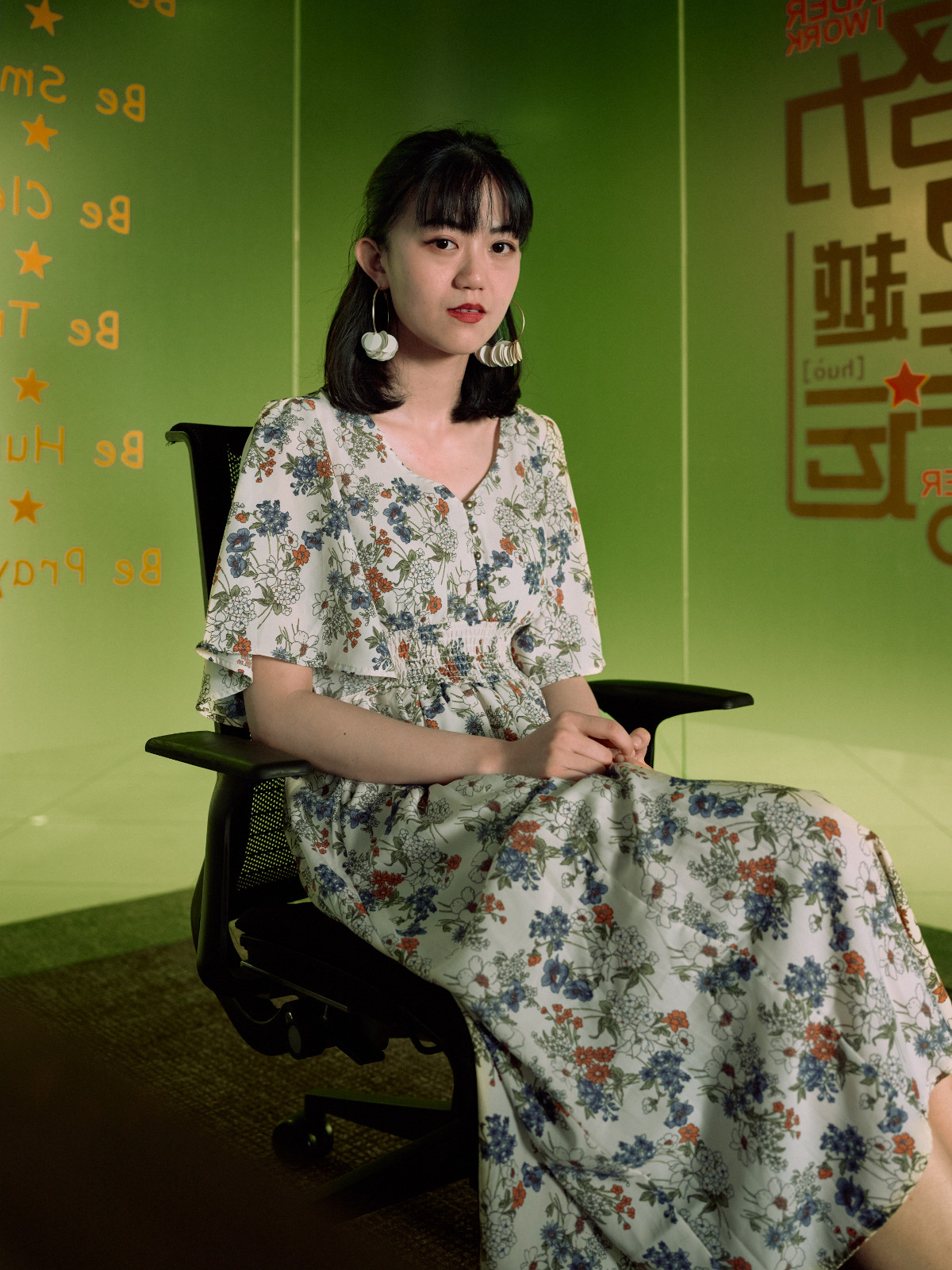
“Do you still make movies?”
“Movies?”
“You know, like the ones you used to shoot around the city.”
I shook my head.
“Not anymore. I haven’t done that in a long time.”
“Why not?”
“I don’t know. Life, I guess? After I graduated, I had to look for work. Then when I got work, dad wanted me to spend more time at the store. So I had to look for new work, which I did. Things evened out. A routine took shape. Life started to feel like I was writing the same page over and over again. If I shot movies of that, it would be like shooting the same footage every day. Not so interesting.”
I thought of an old box under my desk. Of cameras, USB sticks, and photo albums. I thought of dreams both hoped for and lost.
“I liked those movies,” Min said. “You always seemed to find something beautiful to shoot, even when it was boring on the surface.”
After Min left, I stayed outside. I calculated how long it had been since I last shot a video. Three years, give or take. Had it really been that long?
That night I dug through the old box under my desk. I plugged my old video camera into the wall, and poured a collection of USB sticks onto my bed. Five years worth of work, I thought. How many movies?
I spent the rest of the evening copying the contents of the USB sticks to my computer and watching them in no particular order. I sipped at a glass of red wine while an old Beatles album drifted through the window from on an old CD player a few apartments down.
The movies I had made weren’t anything special. They were shopping arcades in the morning, food markets on the weekend, and congested traffic on the way home. They were people playing mahjong in smoky parlors, old men sharing old stories, and kids drinking by the light of a vending machine. They were everyday life in the town I called home, and yet somewhere in that flow of images was a feeling I had forgotten. Nostalgic, curious, and inquisitive. Exploratory. Hopeful.
Where did that part of me go, I wondered?
Perhaps three years really had been that long.
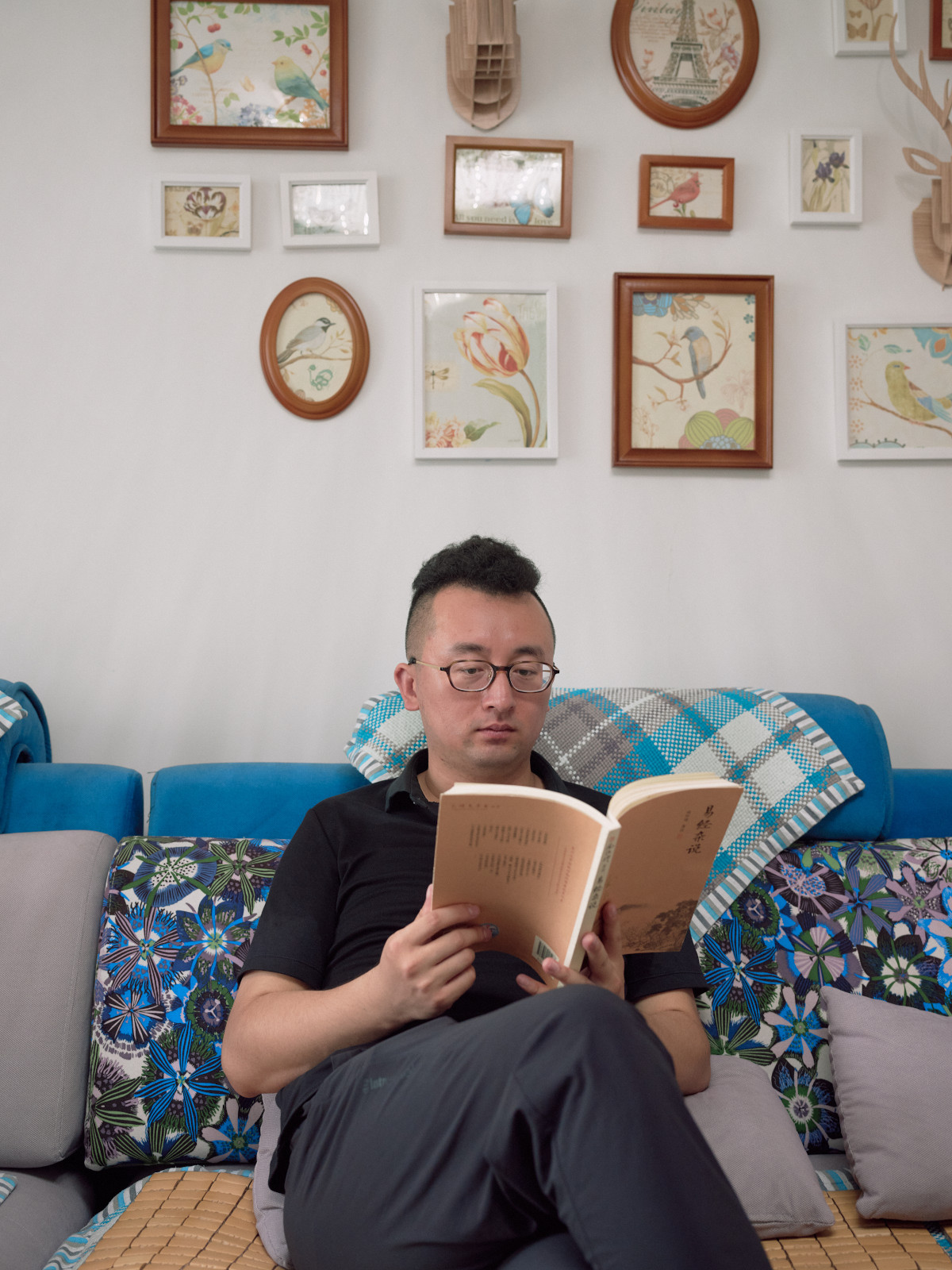
“What are you doing?” Min said.
I peeked my head over the video camera.
“Isn’t it obvious?”
“I thought you gave that up.”
“I did.”
“What happened?”
I shrugged.
“I started again.”
“Then stop again.”
“It’s fine,” I said. “Don’t worry about it. Just act like I’m not here.”
“How?”
I shrugged.
“Just act like you normally do.”
Min laughed.
Just like old times.
“Tell me about it,” I said. “Tell me about your time away.”
We sat at a food stall, sipping at beer over steaming bowls of noodles while the sounds of drunken reverie and passing traffic swirled around us.
“It was different,” Min said. “I mean, I knew it was going to be different, but when you’re in a different place and a different culture, and you share it with completely different people, some of that rubs off on you. You change. You can’t not.”
“And it stays with you, I guess?”
“It’s not just that. It changes your perspective. Maybe not everyone’s, but I know it changed mine. A lot of what I thought of as life stopped being clear-cut. Family, gender, study, career, romance; it used to be a neat little box I lived inside until I realized there was a world outside of it.”
“A part of me always wondered if that would happen,” I said. “When you left, I mean.”
Min nodded.
“I’ve always felt like an outsider, even at home,” she said. “I always felt different. But it was internal. I looked like everyone else, so I felt a pressure to be like everyone else. When I went overseas, that feeling wasn’t internal anymore. It was external too. I didn’t just feel different, I was different. In its own way, that was a kind of freedom for me.”
The words felt like sand slipping through my fingers.
“So why did you come back, anyway? Why didn’t you look for work over there?”
Min looked at her drink.
“I felt like I had to,” she said. “I just… I felt like I had to. I don’t know how else to say it.”
I thought a lot about Min’s words, even after she left for home. I thought of all the little things in my life that together formed an anchor; culture, family, responsibility. And all of it for what?
I didn’t really know.

I saw my life at the time in black and white. I woke up, did some computer work, went to the store, did some more computer work, went home, ate, watched television, then went to bed. I did some variation of this same routine every day, which was fine because I was a monochrome person in a monochrome community. Black and white was fine for us, because we didn’t know what color was, really. It didn’t suit us.
Min, on the other hand, was like a color character who didn’t fit anymore. Nobody around her knew how to deal with the vibrancy, and now that she’d changed, she no longer knew how to deal with us, either.
But as I watched her through the snippets and shots I gathered on my camera, I knew that her color was fading. The environment was draining it from her, and I knew that in time she would become a husk of the color that was; still different, but at least the same black and white as everything else.
And though I felt compelled to capture this slow fade on video, I also felt compelled to help Min find a way back to the color she’d found while she was away. For better or for worse, some small part of me hoped I might help her find new colors, even if the old ones faded.
I saw this as the curse of the hopeless romantic.
“People ask me if I’m going to get married and I can’t work out why I need to hurry,” Min said. “What is 30 outside of a number? Why that and not 29? 31? 40? Who decides?”
It struck me then that I’d never really thought about marriage. The timing, the traditions, why to do it in the first place. Why so many futures seemed to hinge upon it.
“I guess… it’s just the way things are here.”
I thought of a rainy day and two dumb kids smoking on a rooftop. I remembered one of them thinking about marriage. Thinking about how to ask and wanting to, but inevitably doing nothing.
How far we’ve come, I thought.
“Maybe it is,” Min said. “But I don’t like it very much.”
Our conversation faded into silence, but I let the camera roll on the two of us smoking, because I imagined it was capturing exactly what I felt, without us saying anything at all.
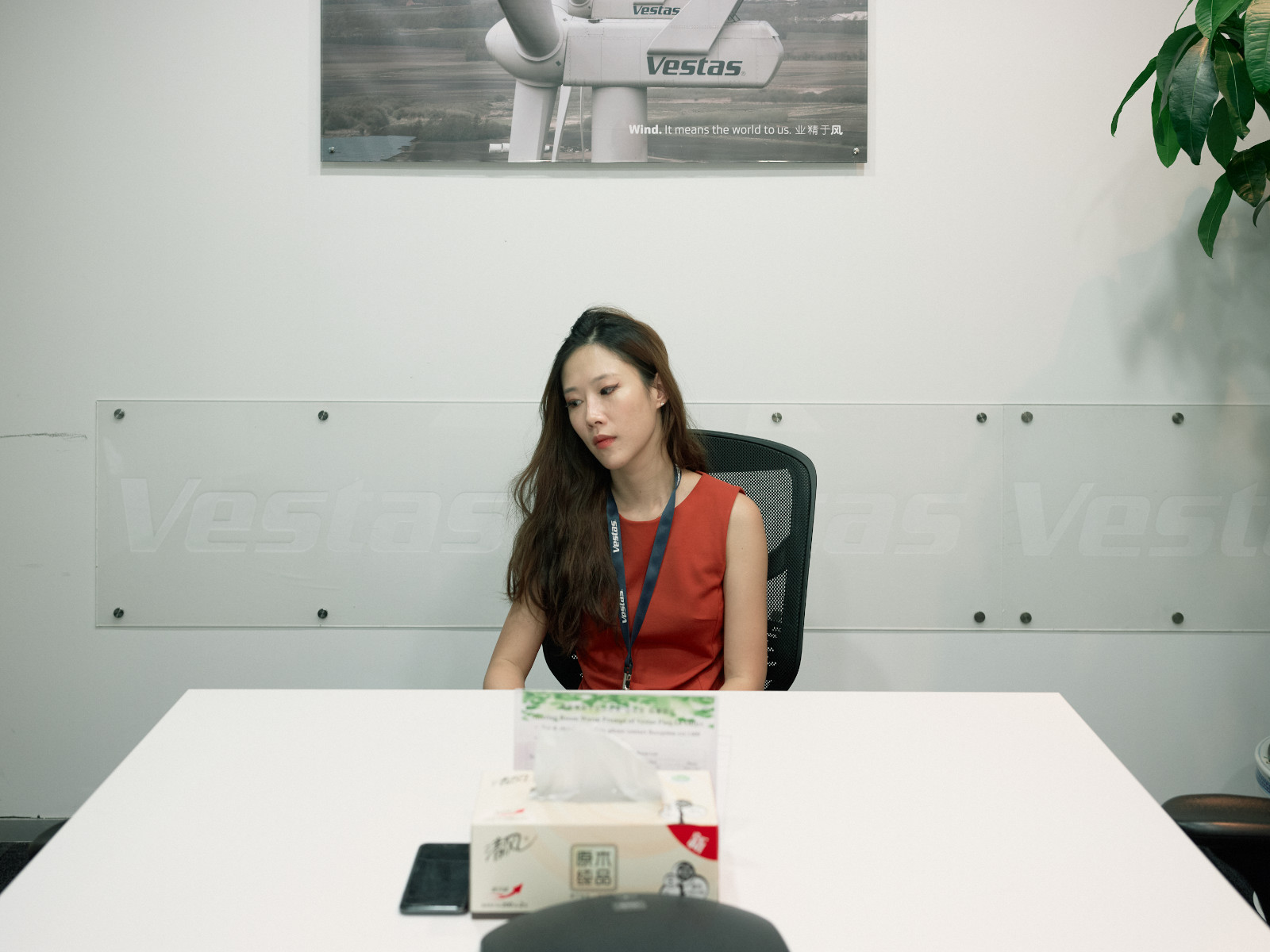
From the countless moments I was collecting of the city, and life, and Min when we were together, an image was forming. A feeling.
A smile on a rainy day. A couple huddled beneath an umbrella in the humid rain. A longing glance and a lazy cigarette. Two beer glasses sweating on a bar counter. Laughter. Her voice clear among a shot of food stalls at sunset, but her words indecipherable. A hand on a steering wheel. A girl walking home by the light of the moon. Her face in the mirror.
An image was forming. A feeling. A message.
I just didn’t know exactly what.
“I think I’m going to leave,” Min said.
“What? When?”
Min shrugged.
“I don’t know. Soon, probably. Soonish.”
“Why?”
“I’m getting to a breaking point. I don’t think I can take it. People want me to be someone else. Someone I’m not. Someone I can’t be anymore.”
I pictured running water over a paintbrush. Colors swirling down a sink.
“I see.”
Min looked over.
“Come with me,” she said.
“Where, though?”
“Anywhere. How about Canada?”
“What about the language?”
“You’ll pick it up. I did.”
“What about my family?”
“What about them?”
“What do I tell them?”
“You tell them you’re leaving.”
I laughed.
“Now or after we’ve left?”
“Either or. I guess it depends on you.”
“Have you told them yet? Your parents?”
Min smiled.
“I’m still deciding,” she said.
And although I knew in that moment I was destined to disappoint her, I was still glad to have caught that particular smile on camera.
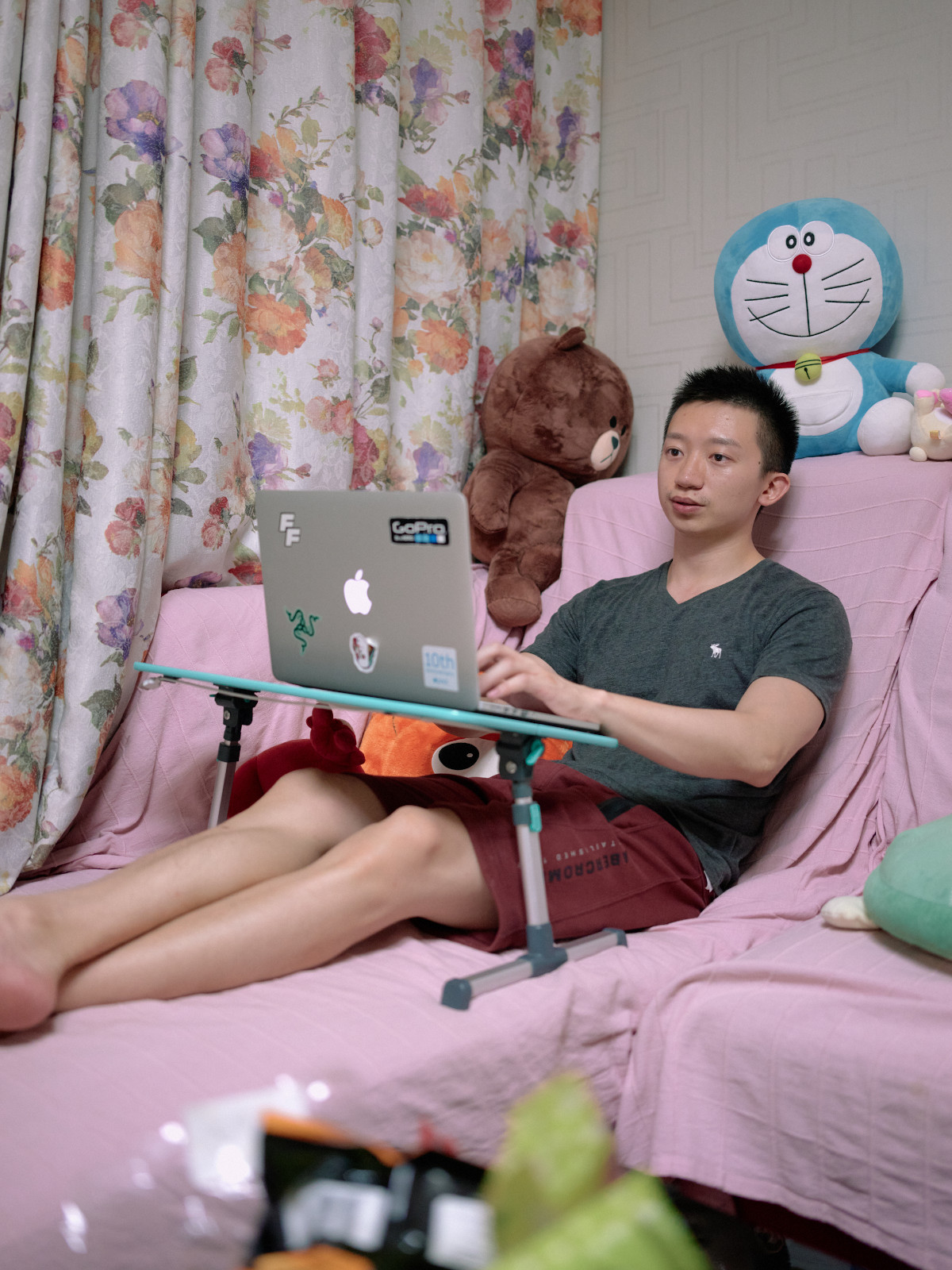
I thought a lot about what Min said over the next couple of weeks. She asked me again, and she asked me once more after that, but each time I found a way to avoid an answer, and we returned to our smoking and traffic watching.
In the evenings, as I put together a film from the snippets of the last few months, I began to realize that exploring the unknown was not my role to play, but that weaving color into my own world was. I was too weighed down by chains of culture, tradition, and family; I would not be the one to discover new worlds and new cultures outside of my own. Instead, I looked to find beauty in the place I called home.
I began to realize that the parts of Min and myself that had brought us together were also the reasons we were destined to part.
“Did you know it was your movies that first made me think about leaving?”
“Really?”
Min nodded.
“You had this way of capturing little things about home that I’d never noticed. Places, people, things. You cut them into your five minute films and I loved them. But do you remember what happened when you showed them to people?”
“Not really,” I said.
“Nothing. Nothing happened. Nobody saw it. They saw the places and the people but they didn’t see the moments that were captured in them. Nobody did. It was infuriating. It made me want to leave. Find some place new.”
“You give me too much credit,” I said.
“But if they couldn’t see what you were trying to shoot with your movies, what hope did I have for my photo-portrait series?”
“Do you still take those?”
“No,” she said, “but that’s not really the point. And you know, even now I feel the same way. The people here, they don’t want to see the world. They don’t want to experience other ways of life and the wonder in other places. I tell everyone about the things I’ve seen and the way it’s changed me, but nobody really listens. Nobody really understands. Nobody wants to try. Not my parents, not my friends, not even…”
Min paused.
“…Not even me,” I said.
There was a long silence, and then Min nodded.
“Not even you,” she said.
We let a silence fill with humidity and cigarette smoke.
“I’m sorry,” I said eventually. “My place is here. It will always be here. I do not have your courage. Your spirit. I cannot break free like you did because in my heart, I don’t think I want to. I’m… I’m sorry.”
Min shook her head.
“You don’t have to be sorry. You are who you are, and I am who I am. It is what it is.”
“You’re really going to do it, aren’t you?”
“This place,” Min said. “It just doesn’t feel like home anymore.”
I nodded.
“You know,” I said, “I’ve been making a movie recently. It’s almost finished. The first one I’ve made in three years. I could show it to you before you go.”
“Am I in it?”
“You are,” I said.
Min thought for a time, then shook her head.
“No. You’ve probably already captured who I am,” she said, “and that’s still something I want to find out for myself. How about you turn the camera off for a while instead?”
So I did.
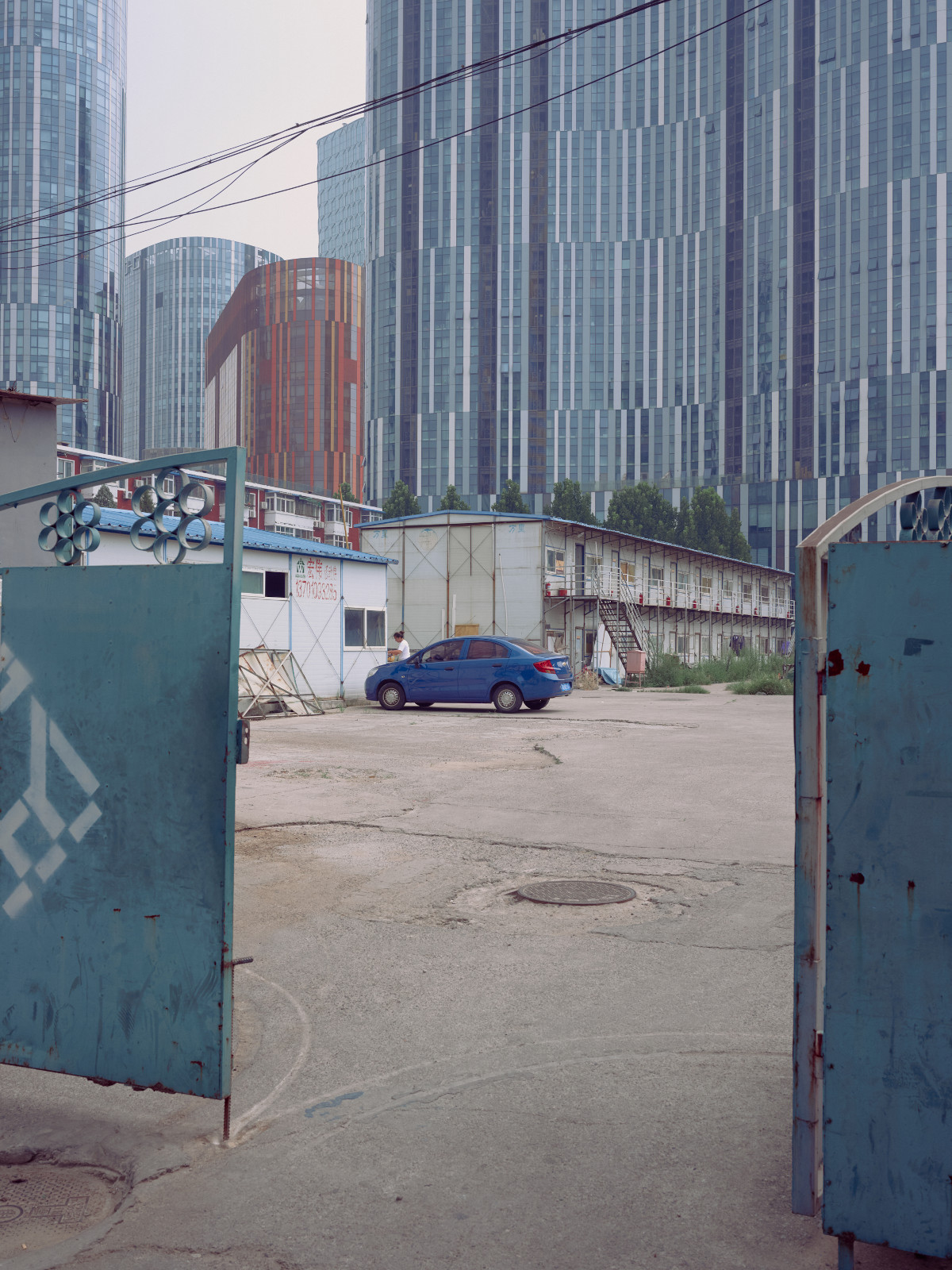
I drove Min to the airport the day she left. She had a small suitcase and a backpack, and a plastic bag full of snacks for her flight. Her hair was a mess, and her eyes had the look of someone who has resigned themself to spending too long in a confined space with other people.
“Thanks for brining me here,” she said.
“I didn’t expect you to ask,” I said.
“There was nobody else.”
I laughed.
“Ah.”
“I guess this is it, then,” she said.
“I guess so.”
“Thank you,” she said. “For listening. For being a friend.”
There was a look then, in her eyes. A look I wanted to capture. It made me think of a movie I had at home, and the image that had formed in its sights, sounds, and scenery. It made me think of the feeling that had nestled into its rhythms and movements, and I knew now what it was.
It was love. Unrequited, unspoken, and unattainable, but love all the same.
“No,” I said. “I should thank you. For reminding me to see the art in everyday life.”
There was no kiss, and no hug, and no final words to mark our parting. Instead, there was the half-smile she gave for what might have been, and the half-finished pack of cigarettes she gave me before she left.
And then she was gone.
After Min left, I noticed the world had changed. It was not something I could see or explain easily, and yet I was sure something was different. It was like opening a book I had read a long time ago, and realizing the story was not as I remembered it.
I lit up one of Min’s cigarettes and started my car. I thought about the books where characters discover hidden truths, and the books I could put down when I didn’t feel like reading them. And I realized that Min had left not because she was writing her own book, but because she was the book, and she did not like the author she met when she had returned home.